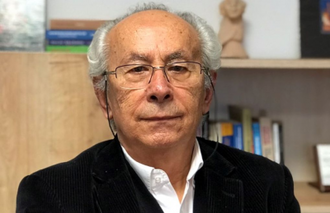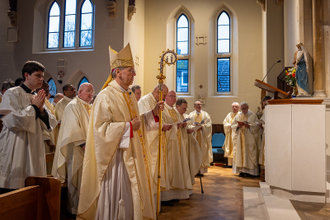Civil Society is on trial in Turkey

image: bianet
A criminal case against a 79-year-old economics professor is symptomatic of President Erdogan's deepening assault on Turkish civil society. The trial should concern everyone who values freedom of speech and belief. On 22 November, Fikret Baskaya will be tried in Ankara under Article 7/2 of the Anti-Terrorism Law. Professor Baskaya, who recently had a heart bypass, faces five years in prison if convicted. His crime was writing about Turkey's persecution of its Kurdish population.
This is not the first time Baskaya has been prosecuted or jailed by the Turkish authorities. I attended one of his previous trials, in 2005. Then, as now, he wrote about human rights and the Kurdish people. I was part of a delegation of foreign observers. Although we had no idea what was being said, our presence in the courtroom was enough to convince the judge to drop the charges. The same technique served to embarrass the authorities when the Nobel-prize-winning author Ohran Pamuk was tried in Istanbul; his case was also dropped due to heightened international interest in its outcome.
After Baskaya's hearing in 2005, we celebrated his victory in a local restaurant in Ankara. The professor sat quietly, while his Turkish friends volunteered their personal histories. One by one, they told their foreign guests about being watched by the Turkish "deep state" for decades, well before President Erdogan's Justice and Development Party (AKP) took office in 2002. Among them were writers, academics, publishers and trade unionists. Their careers had been wrecked, their families had suffered, they had been jailed, and in some cases tortured.
To an outsider, the lunch party looked like a group of pensioners enjoying a weekly get-together at a favourite restaurant. Yet, each man and woman there had paid the price for challenging the authorities' systematic crushing of free speech and civil society.
On another occasion, in Istanbul, our delegation hosted a party for some local human rights defenders. We chose a posh hotel by the Bosphorus that had only recently opened in what was described as "a converted Ottoman palace." When we asked one of our Turkish friends, a journalist, if he had visited the hotel before, he told us he had been tortured there not that long ago, when it was an outpost of the security services.
Professor Baskaya has been jailed on several occasions. Apart from writing about the subjugation of the Kurds, he has challenged Turkey's official amnesia about the Armenian genocide of 1914-23. In 2007, he signed an open letter condemning the murder of Hrant Dink, the prominent campaigner and intellectual who called on Turkey to acknowledge its role in the expulsion and murder of one and a half million Armenian Christians. Baskaya also signed an open letter to the Armenian people, apologizing on Turkey's behalf.
While Professor Baskaya has never advocated violence, he does not mince words about what he calls Turkey's "state terrorism." He contends that Erdogan's administration cannot exist without an enemy in order to hold onto power and to sustain its emergency powers. The state itself defines terrorism, he says, and an "ideological slavery prevents reality from having any influence."
According to Freedom House the impartial watchdog, Erdogan's AKP government shows "growing contempt for political rights and civil liberties, and its authoritarian nature has been fully consolidated since a 2016 coup attempt triggered a more dramatic crackdown on perceived opponents of the leadership. Constitutional changes adopted in 2017 concentrated power in the hands of the president, and worsening electoral conditions have made it increasingly difficult for opposition parties to challenge Erdoğan's control."
Amnesty International has catalogued the sacking of thousands of judges, military officers, journalists and lawyers in the wake of the 2016 coup attempt. Prosecutors and judges face "extreme political pressure", and the surviving media has reverted to self-censorship, for fear of antagonising the authorities, it says.
A Turkish overseas aid worker interviewed for this article remarks, "Every time I go home to Turkey, I find more and more of my friends are in prison." However, she pointed out that several cities, including Istanbul, rejected AKP mayors in elections earlier this year. The aid worker requested anonymity to protect her family remaining in Istanbul.
President Erdogan was in Washington last week, basking in praise from President Trump. However, the US Senate continues to express concern about Turkey's recent purchase of the Russian S400 missile system, the country's incursion into Syria, its close relationship with Iran, and the heavy-handed behaviour of its security detail during Erdogan's previous visit to the US capital.
PEN International is calling for all charges against Baskaya to be dropped. It is also campaigning for Turkey's anti-terrorism and defamation laws to be amended.
For more information go to:
https://pen-international.org/news/turkey-drop-charges-against-fikret-baskaya
To urge the Turkish authorities to drop the charges against Fikret Baskaya please email:
Embassy.london@mfa.gov.tr if you live in the UK
Embassy.washingtondc@mfa.gov.tr if you live in the USA


















